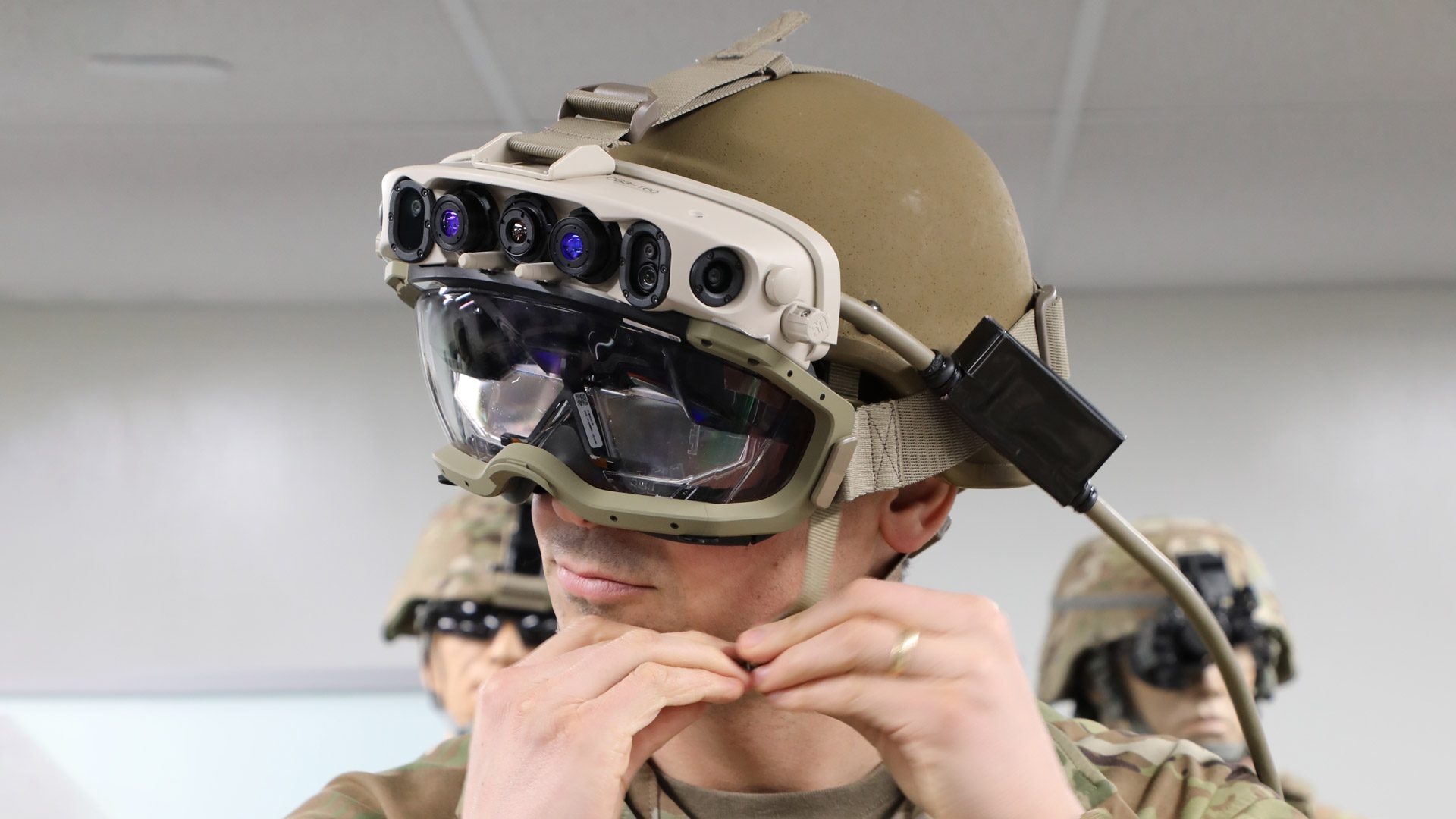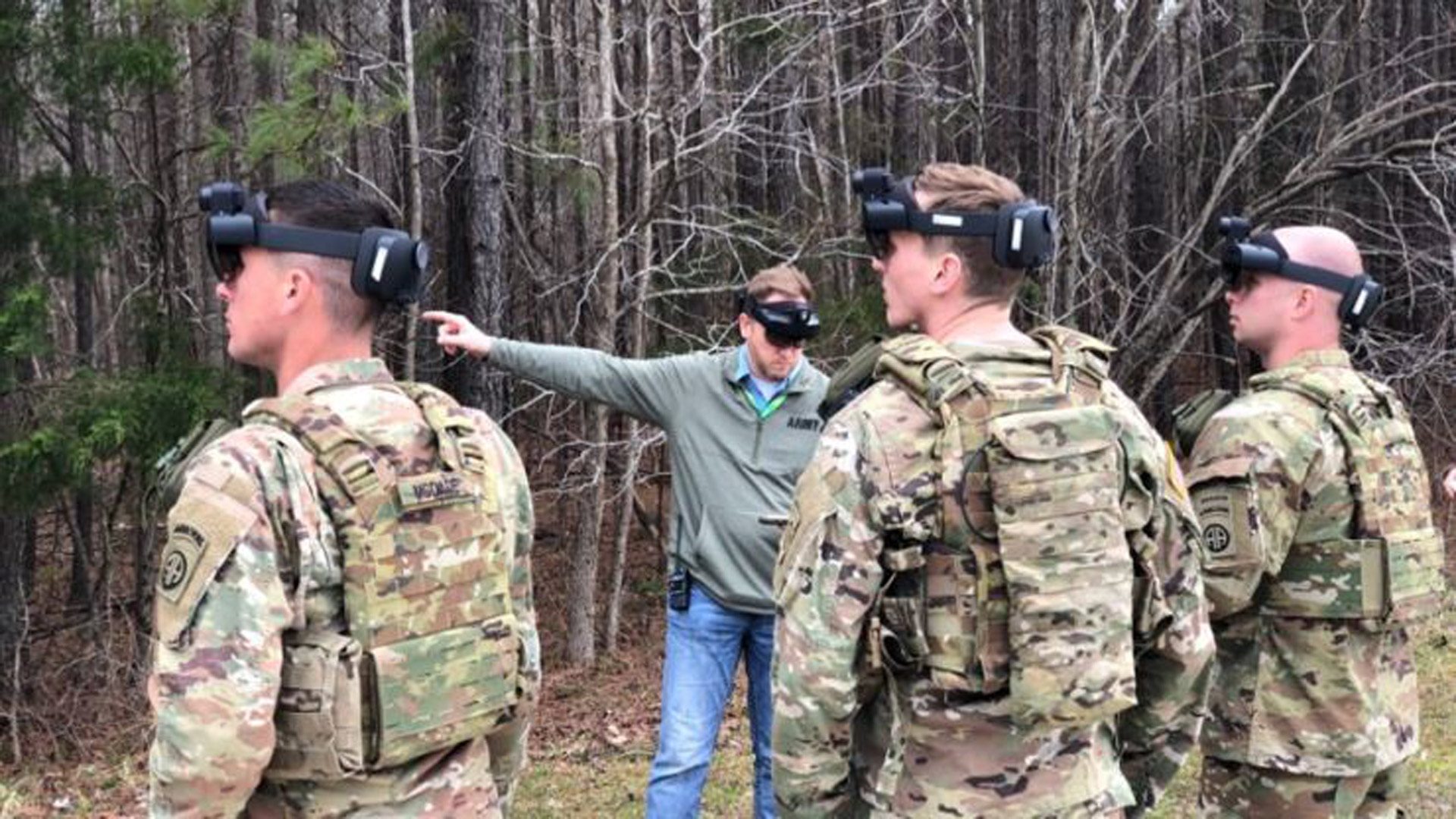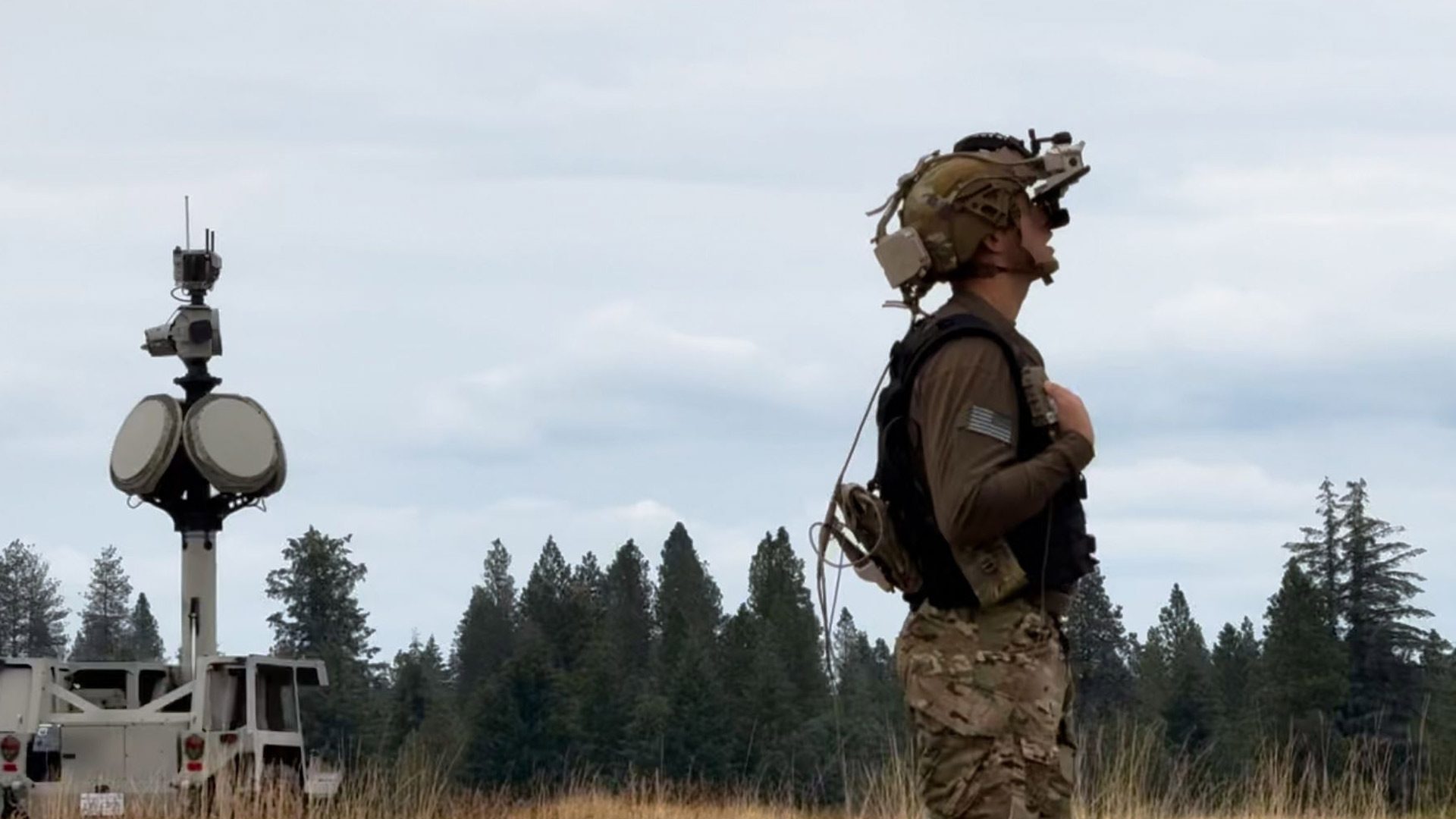Anduril Industries, the defense tech company founded by Oculus founder Palmer Luckey, announced it’s partnering with Microsoft to boost the company’s militarized, HoloLens 2-based AR headset, which is currently under contract by the United States Army.
The company maintains its Lattice platform, integrated into Microsoft’s Integrated Visual Augmentation System (IVAS), will provide soldiers real-time threat detection, aiming to improve battlefield awareness and survivability by looping in data from sources such as drones, ground vehicles, or aerial defense systems, Wired writes.
As noted on the Anduril website, Lattice uses a host of technologies—including sensor fusion, computer vision, edge computing, machine learning and AI—to autonomously parse data from thousands of sensors and data sources into “an intelligent common operating picture in a single pane of glass.”

“Soldiers wearing Lattice-enabled IVAS headsets are rapidly warned of incoming autonomously-detected airborne threats, enhancing survivability in complex, contested environments,” Anduril says in a press release. “The integration of Anduril’s systems, alongside third-party technologies, is set to propel the IVAS mission capabilities forward.”
Luckey, who was ousted from Meta (ex-Facebook) in 2017 following backlash over his donation to a pro-Trump group, emphasized the importance of the collaboration, highlighting its potential to revolutionize military operations.
“This project is my top priority at Anduril, and it has been for some time now. It’s one of the Army’s most critical programs being fielded in the near future, with the goal of getting the right data to the right people at the right time,” Luckey says. “This is Anduril’s bread and butter, and we’ve been building the backbone for this for years. I can’t wait to show our customers what’s next — I’m incredibly excited about what’s to come.”
Notably, Luckey announced earlier this summer that he was developing a new XR headset, which he later revealed at AWE 2024 in June would be “driven by military requirements, but also going to be used for non-military stuff.” We still haven’t seen the headset in question.
Microsoft Struggles to Scale IVAS
Microsoft’s HoloLens 2-based IVAS has faced a number of challenges since it was first awarded the U.S. Army defense contract in 2019, worth up to $22 billion.
According to Breaking Defense, in 2019 the Pentagon’s testing arm reported that early units garnered poor ratings during initial field testing, which was primarily due to reliability and ruggedness concerns, specifically citing a lack of rain resistance. At the time, IVAS was seemingly based on off-the-shelf units, augmented with additional sensors.

In 2022, newer, more ruggedized versions reportedly received another round of negative field testing, owing to issues with the device’s low-light and thermal imaging performance, as well as soldiers’ experience with headaches, eye strain, and nausea.
Then, in late 2023, 1.2 versions of IVAS demonstrated critical improvements in “reliability, low light sensor performance, and form factor,” a U.S. Army spokesperson told Bloomberg at the time, further stating that “soldier feedback was positive.”
Still, the U.S. Army hasn’t ordered Microsoft to scale up its IVAS efforts despite continuous improvements, which more recently included replacing 1.2’s helmet-style form factor with a less cumbersome flip-up display, reportedly shrinking the 70-degree field of view to 60-degrees in the process, but also providing better clarity.
Furthermore, a recent report from Breaking Defense suggests the U.S. Army is preparing a new open competition, called “IVAS Next”, meaning Microsoft’s IVAS could be replaced entirely if it’s outcompeted by other manufacturers, such as Kopin—or even Anduril if it decides to enter. Industry solicitation could happen later this year, Breaking Defense reports, so it’s possible we’ll learn more then.
,
